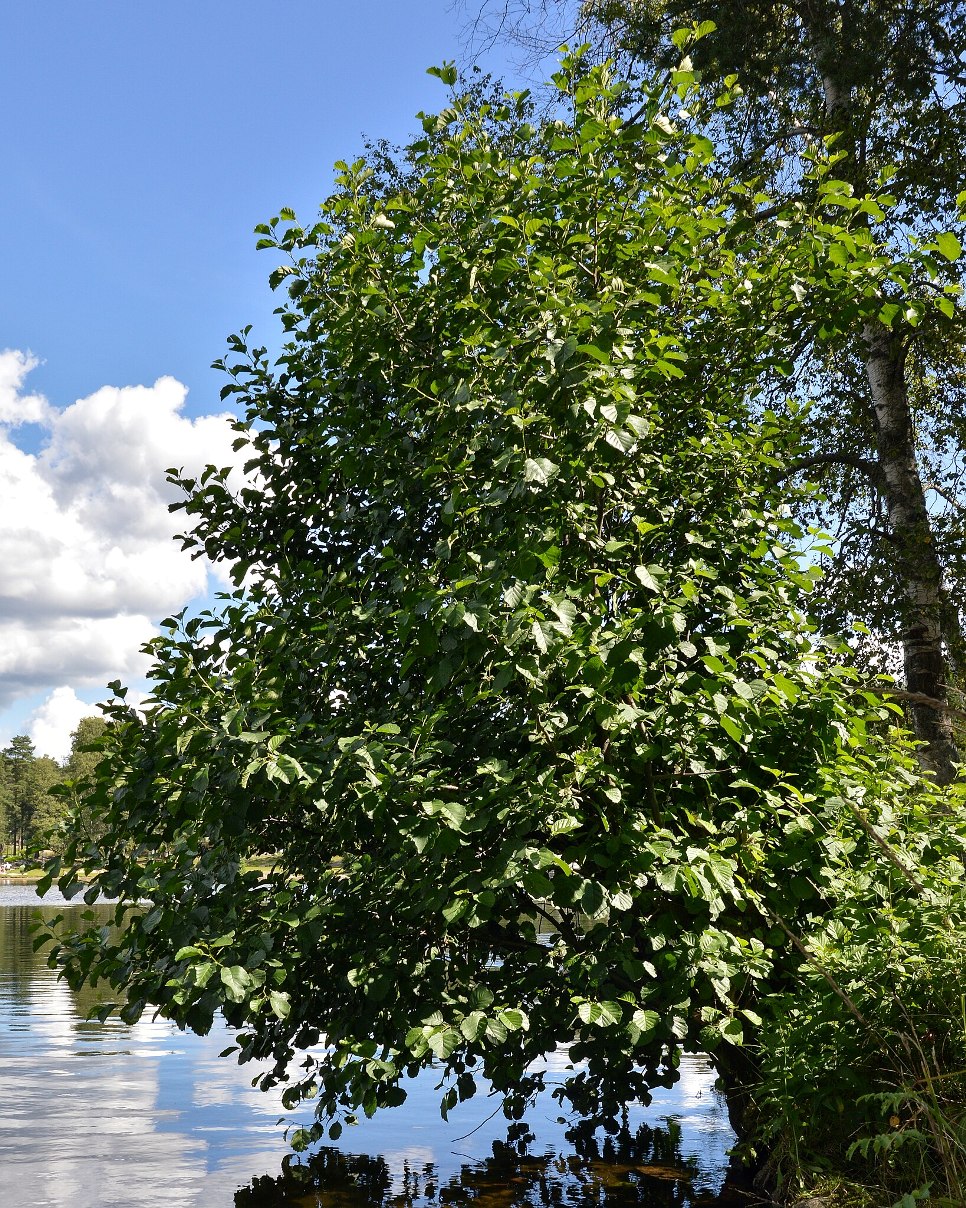Alnus glutinosa
Alder, black
Species Tolerances
- Drought Tolerance: Low
- Shade Tolerance: No
- Waterlogging Tolerance: High
- Frost Tolerance (trees from warmer climates may be frost tolerant, but their flowers may not be): Yes
- RHS Hardiness: H7
- Optimum Conditions for Growth:
Grows in wet soil right up to the river edge and in swampy conditions. Suits most soils and sites, such as coarse sand and gravel, except shallow chalk. - Susceptibility to Pest/Disease:
May be susceptible to phytophthora alni, a major threat.

Common_Alder_Alnus_glutinosa_-_Oslo_Norway_2020/ Ryan-Hodnett/ https://creativecommons.org/licenses/by-sa/4.0/deed.en
Service to Pollinators
- Summary of Service to Pollinators:
Although wind pollinated and so there is no nectar, and though the pollen is not as highly nutritious as other pollens, bees will work the flowers in early spring for its pollen. - Nectar Value to Pollinators: 0 (of 0-3)
- Honeydew Value to Pollinators: 0 (of 0-3)
- Pollen Value to Bees: 1 (of 0-3)
- Flowering Period: March
Risks
- Human Toxicity: Non-toxic
- Livestock Toxicity: Non-toxic
- Invasive Risk: No
- Suckering: No
Products
- Edible Fruit: No
- Edible Leaves: No
- Edible Sap: No
- Edible Seeds: No
- Honey, major source in UK: No
- For any medicinal potential, see 'Further Details' below.
- Timber: Yes
- Livestock Fodder: Yes
- Other Products:
Propolis can be made by honeybees from its resin/oils, a secondary source. Its usefulness to all bees is as a source of pollen early in the year when bees need pollen for egg-laying. Its timber is fast-growing, soft, porous and rot-resistant. Coppice and charcoal potential.
Utility
- Nitrogen Fixation: Yes
- Organic Matter Accumulation: Yes
- Phytoremediation: Yes
- Deacidification: Insufficient Data
- Windbreak: Yes
- Soil Erosion Control: Yes
- Shade or Shelter: Yes
- Plant Support: Insufficient Data
- Integrated Pest Management: Insufficient Data
- Wildlife Value: Yes
- Wildlife Value Summary:
Good for biodiversity, which refers to invertebrate diversity feeding on the tree, especially insects, and its seeds are available to a large number of birds and mammals - Graduated Nativeness Classification ⓘ: 1 (of 1-10)1. Historic Native
2. Historic Introduction
9. Neutral Introduction
Further Details
Fast growing soft timber, porous and rot resistant. High foliar nitrogen leads to nitrogen accumulation in the soil through leaf litter.